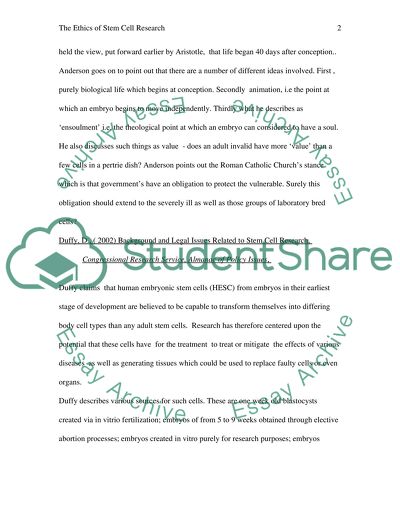Cite this document
(“Ethcis of Stem Cell Research Paper Example | Topics and Well Written Essays - 1750 words”, n.d.)
Retrieved from https://studentshare.org/medical-science/1425563-ethcis-of-stem-cell
Retrieved from https://studentshare.org/medical-science/1425563-ethcis-of-stem-cell
(Ethcis of Stem Cell Research Paper Example | Topics and Well Written Essays - 1750 Words)
https://studentshare.org/medical-science/1425563-ethcis-of-stem-cell.
https://studentshare.org/medical-science/1425563-ethcis-of-stem-cell.
“Ethcis of Stem Cell Research Paper Example | Topics and Well Written Essays - 1750 Words”, n.d. https://studentshare.org/medical-science/1425563-ethcis-of-stem-cell.


